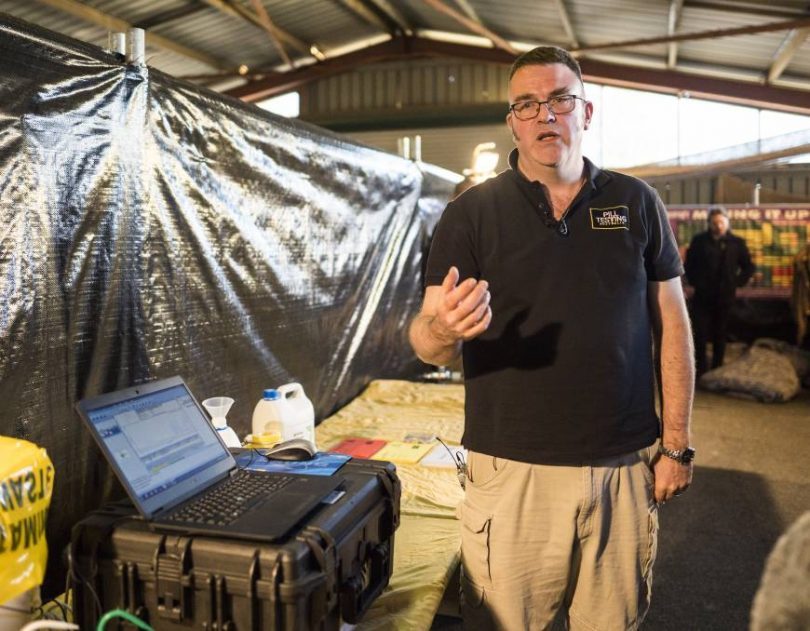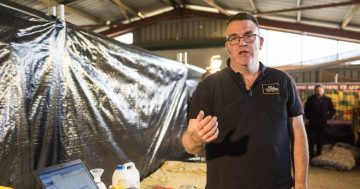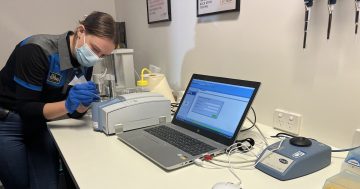
A permanent pill-testing site makes sense, Greens leader Shane Rattenbury says. Photos: File.
The ACT Greens have upped the ante in the pill-testing debate, again calling for a trial of a fixed site where ‘party drugs’ could be regularly tested in the ACT.
Responding to reports of a draft recommendation of the NSW coroner that pill testing be provided at music festivals, Greens leader and spokesperson for Drug Law Reform Shane Rattenbury says pill testing should now move beyond specific events, where two trials have been successfully conducted in the ACT, to a fixed site, such as a health centre.
Mr Rattenbury said a fixed pill-testing site would be appropriate to deal with the realities of regular recreational drug use in the ACT, and minimise potential harm to users.
“Having a site that operated on a regular basis would help shift the culture over time to people taking those precautionary steps, going to have their pills tested before they use them and broadening the impact of pill-testing facilities,” he said.
He said there had been suggestions that a health clinic in Civic operate on Friday and Saturday nights.
Mr Rattenbury said he was not surprised to hear of the NSW coroner’s draft recommendation, saying the Greens know that pill testing was a successful harm minimisation activity, and a key step to save lives in festival environments.
“The NSW coroner is an independent judicial body that has today, after exploring the evidence in relation to the deaths of six young people at music festivals between December 2017 and January 2019, come to the same conclusion of other medical bodies – that pill testing reduces harm from drug use,” he said.
But he said people also consumed illicit ‘party drugs’ at locations other than music festivals and that a static pill-testing model appropriate to the ACT’s needs should be developed in close consultation with medical and community groups.
“So far, ACT pill-testing trials have been run entirely on volunteer time to ensure that fewer young people come to harm as a result of their illicit drug use,” he said.
“The ACT Government has contributed in-kind support through approval processes and partnerships. We now need a funding model that makes this sustainable, whether through government funding, philanthropic support or contributions from festival organisers, given how important pill testing is as a public health measure.”
Mr Rattenbury said that in countries like the Netherlands regular pill testing was the norm, with testing available at health centres.
“In potentially saving young lives, the Greens believe this is money well spent,” he said.

Dr David Caldicott: saving a single life would probably cover the cost of the site.
Emergency doctor and pill-testing advocate David Caldicott said a move to a static site would be a natural progression from the work done at ACT music festivals, which had reconfirmed the success of pill testing seen overseas.
“The overwhelming majority of harm does not occur at music festivals but out of music festivals,” Dr Caldicott said. “The Dutch have been running fixed-site pill testing for decades, allowing them to put out early warning messages about dangerous drugs, exactly the same drugs that have killed people in other jurisdictions at the same time.”
He said fixed sites for drug testing had recently been established in other countries such as Canada and the United States, mainly to deal with the opioid crisis.
Dr Caldicott said there was good science behinds calls for pill-testing sites but the question was whether there was the political appetite for it.
He said Australia should be guided by expertise and global experience.
“There’s more than enough evidence to support that sort of approach,” he said.
Dr Caldicott said he believed young Australians would respond to pill testing the same way as they had in Europe.
He said there were many funding models that could be used but “the reality is that if you can prevent a single overdose requiring ambulance and transport and hospitalisation you’re probably covering the cost of running the testing site”.
There were already precedents for how such a site would be policed with the safe injecting rooms in Richmond and Kings Cross.
“The AFP/ACT police force has got a very well-informed approach to drugs policy and how to police those sorts of events. If we were to go down the route of planning for a static site in the ACT they would be an integral part of that planning,” he said.
Coroner Harriet Grahame has reportedly also recommended that police body searches and use of sniffer dogs be stopped. Her findings will be made public on 8 November.
The Government would consider the NSW coroner’s findings when they were formally handed down, a spokesperson said.
“An independent evaluation of the second Groovin the Moo pill testing trial is currently under way that will help inform the Government’s ongoing policy on pill testing,” the spokesperson said.
“We have provided a supportive policy environment for pill testing at music festivals in line with our broader drug strategy, which is focused on harm minimisation.”
The Canberra Liberals have repeatedly rejected arguments for pill testing in the ACT, saying it legitimises illicit drug use.
















